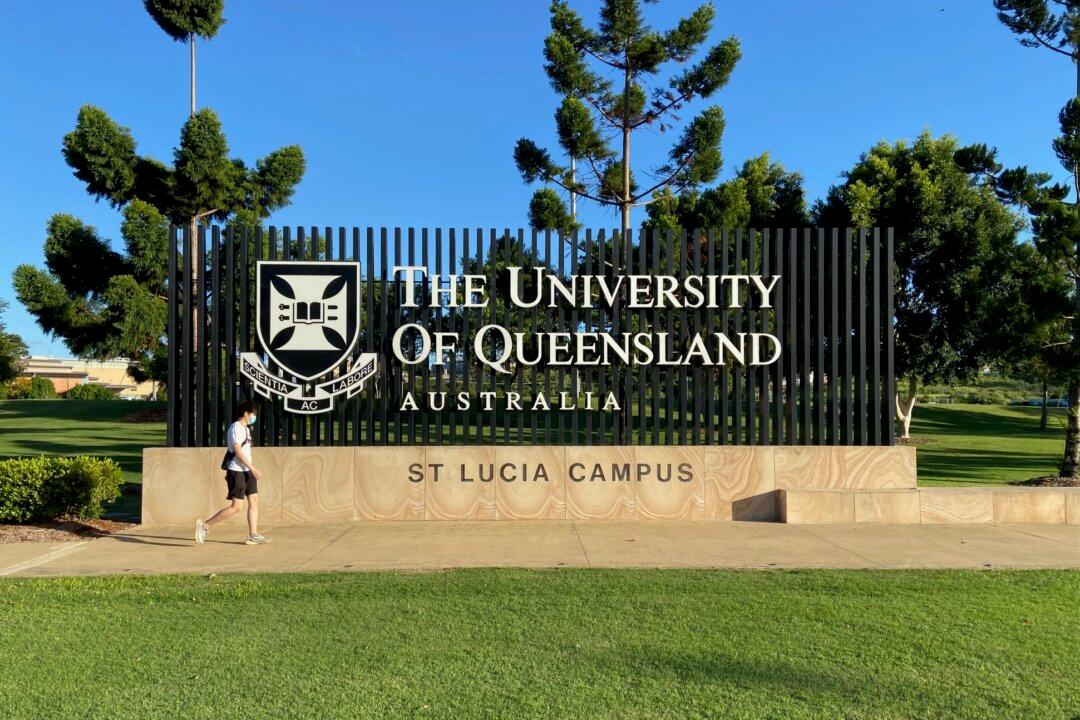An overseas Chinese student has been captured on video tearing down posters supporting democracy and freedom in Hong Kong and China at the University of Queensland (UQ) in Australia—an incident highlighting the ongoing influence of the Chinese Communist Party (CCP) indoctrination has had on the Chinese people.
The video was posted on the Twitter account of student activist Drew Pavlou on Feb. 17 and showed a young Chinese woman—presumably a student—angrily tearing posters, some already old and tattered, off a “Lennon Wall” on university grounds, which was set up by students in 2019 in solidarity with pro-democracy rallies in Hong Kong at the time.
Pavlou credited the video to Billie Krugelman.
A man can be heard in the video engaging in conversation with the lady whose face was blurred out.
The woman initially asked if the camera had been turned on.
“Your camera has been on? You are ruining my liberty,” she said in the video.
He responded, “I’m allowed to film here.”
“I don’t want to show my face,” she continued. “I just want to show that I’m not (afraid) to show my freedom. This is my freedom to ruin this.”
The man responded calmly, asking why she thought it was right to rip the posters down.
“I don’t think I’m right, but you think you are right to tell these lies to the students, especially those teenagers?” she responded.
“I don’t think they are lies,” the man replied. “I don’t think that any of those are lies, can you point to a specific one that is?”
“You don’t think they are all lies, and I think you have the time to figure out what lies to show here,” she said.
The man then points to a partially ripped image of the famous “tank man” incident where a man stands in front of a line of tanks during the Tiananmen Square Massacre.
“Are you aware of what happened then?” he asks.

“No, I don’t know about that because I haven’t been born yet; it happened 40 to 50 years ago, right ... It happened decades ago,” she replied. “Why are you concerned about things that happened decades ago? I’m just thinking about now; I’m thinking about the students and teenagers; they will be influenced by this wall.”
The man responded that the poster was to help people “think twice” about incidents such as the persecution of the Uyghur minority in China’s western Xinjiang province.
“As far as I’m aware, there are Uyghur Muslims in concentration camps,” the man said.
“Concentration camps. Ha, ha, ha,” the woman responded. “Do you have jails in Australia, you have jails in Australia.” She then ran off.
In a later Twitter post, Pavlou revealed the Lennon Wall was being put together again.
This is not the first time the Lennon Wall has been the subject of anger from Chinese international students.
In August 2019, not long after the Wall was set up, four masked men were caught on surveillance footage tearing down the display. The incident occurred just two weeks after violent clashes were instigated on university grounds by Chinese students against Hong Kong pro-democracy supporters.

Xu said pride in China’s achievements was distorted to represent “pride in the CCP,” which was a narrative channelled into schoolchildren and the public—causing them to lash out against any perceived slight against the party or country.
Feng had spoken about how overseas students, who were away from family and networks, were even more susceptible to the influence of CCP propaganda, mainly when they engaged with WeChat or Chinese associations.





